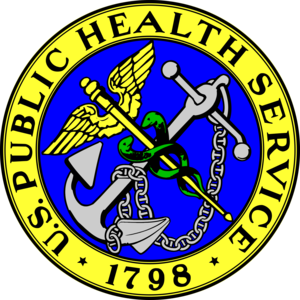Did you know nurses, physician assistants, therapists and other health staff from the U.S. Public Health Service (PHS) who have been detailed to federal correctional facilities are also assigned to guard duty or other security-related tasks for which they are not adequately trained?
This astonishing situation stems from persistent security staff shortages across the United States, coupled with a long-festering dispute with the union representing those security staffers. One former U.S. Surgeon General contends that giving PHS health staffers assignments like transporting inmates through maximum security areas, patrolling recreation areas, or securing cellblocks puts "medical professionals in danger" and should be ended.
It's tough to argue with this logic. I was stunned to learn recently that health staffers are given regular shift assignments performing less dangerous, but still non-health tasks, like monitoring inmates' correspondence or telephone calls. While the PHS confirms it deals with shortages of security staff by paying overtime to those who work additional hours or by assigning uniformed PHS health staff to security duties, the current head of the PHS recently refused to discuss the controversy, saying it's wrapped up in an ongoing labor dispute.
The Bureau of Prisons is just one of several dozen federal agencies which draw on PHS medical staffers. By assigning medical staffers to security duties for which they are at best minimally trained, prisons can hold down overtime costs for security staff; the close to 900 PHS staffers assigned to federal correctional facilities, unlike unionized correctional officers, are ineligible for overtime pay.
But at the same time prison medical support staff are being given security-related assignments, federal correctional facilities are experiencing serious shortages of medical staff, ranging in some locations at 40% or greater, according to a report by the inspector general of the Department of Justice Department, which described the shortages as approaching "crisis" proportions.
According to recent media reports, contributing to the problem is a conflict between civilian employees of the Bureau of Prisons, who are represented by the American Federation of Government Employees, and PHS medical staff, who are members of a uniformed military service and are thus prohibited by law from joining a union or being covered by the labor contract.
As a result, some PHS medical staff claim they are being discriminated against because of their uniformed status, in areas like work assignments, in violation of USERRA, the Uniformed Services Employment and Reemployment Rights Act. When unionized civilian nurses exercise seniority rights in bidding on work assignments, PHS nurses are often left with the least desirable jobs, locations and shifts.
One recent example is a dispute decided in a 2-1 ruling last October by the Federal Labor Relations Authority - which resolves labor disputes involving federal workers, as the National Labor Relations Board does in private-sector cases - involving nurses in a Lexington, Kentucky prison, over the Bureau of Prisons' attempt to defend the prison's practice of reserving some nursing jobs for PHS nurses.
The agency argued that if it couldn't do so, it would likely face a "mass exodus" of PHS nurses. But because it raised that argument too late in the legal proceedings, the agency was told the federal labor contract precluded reserving any jobs for non-unionized nurses. If left unresolved, the dispute could wind up exacerbating prison shortages of both medical and correctional staff. And in this situation, there are no winners.
Christopher Zoukis is the author of College for Convicts: The Case for Higher Education in American Prisons (McFarland & Co., 2014) and Prison Education Guide (Prison Legal News Publishing, 2016). He can be found online at ChristopherZoukis.com, PrisonEducation.com and PrisonLawBlog.com

